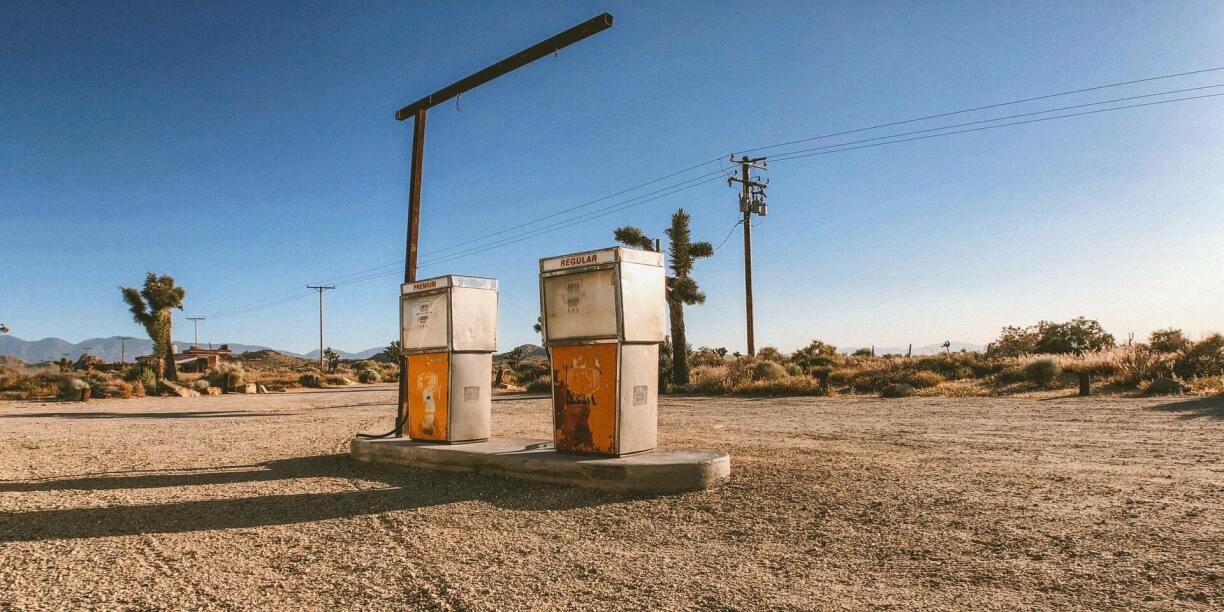
For the last 2 weeks, the majority of conversations I’ve overheard have been about one thing: the increase in gas prices.
I should first begin by saying there are many people who are struggling for a variety of reasons and who cannot conceivably change their immediate reliance on these increasingly unaffordable fuels. While I sympathise with those who will inevitably be negatively affected (those who are unable to purchase more fuel-efficient vehicles, farmers who can’t simply replace millions of euros worth of farm equipment etc.), I can’t help but roll my eyes as those who are more fortunate, continue to complain about fueling their gas guzzling vehicles.
It’s high time we stop complaining about gas prices and instead focus our energy towards (heavily) reducing our reliance on fossil fuels.
The understanding that fossil fuel consumption has a detrimental effect on our environment and is a key player in human-induced climate change is nothing new. In fact, Swedish scientist Svante Arrhenius was the first to claim that fossil fuel combustion would result in increased global warming all the way back in 1896. Since then, scientists have been sounding the alarm.
At the 1959 Petroleum conference at Colombia university, scientist Edward Teller again warned against the detrimental effects of burning fossil fuels. The American Petroleum society, along with the US’ largest oil companies collected and shared (among themselves) climate data, including the role fossil fuel combustion plays in global temperature rising from 1979 through 1983. I could go on, but you get the idea; fossil fuels have never, will never and should never be considered a sustainable or ecological solution for the future of our planet and society.
Yet here we find ourselves, more than a hundred years after the first warnings, still incredibly reliant on fossil fuels. My hope is that once people stop moaning about gas prices, they can perhaps reflect on the true price they are paying, as well as the price that will have to be ultimately paid by their children and grandchildren in the years to come. You can’t drive your fancy car on a planet that is inhabitable.
Luxembourg is a car country, no ifs, ands, or buts about it. Additionally, we have (up until recently) cheap gas prices, a decent amount of disposable income and a proclivity for larger and newer vehicles. Most cars on the road aren’t even much older than 5 years.
The solution is not as simple as ‘stop driving your car,’ I’m not under any illusion that people will give up their cars from one day to the next, while I will say in most instances that could be possible. Highlighting a problem accomplishes nothing unless solutions are also provided. There are simple things that we can do to save money on gas, reduce our carbon footprint and hopefully ween ourselves a bit off fossil fuel consumption with minimal sacrifice.
So in an attempt to not entirely lose my audience at this point of my opinion, I present you with several small solutions:
Carpool
It’s not uncommon to see households with multiple vehicles here in Luxembourg, yet many of the cars on the roads are only filled with one person aka - their driver. Carpooling is an easy way to reduce your environmental impact, cut your fuel costs in half and engage in some quality conversation. Do you have a colleague who live in the neighborhood? Does your spouse work around the corner from you? Could you maybe drop your roommate off at a bus stop on your way to work?
Riding your bike or scooter
There are too many bikes on the roads on the weekends for people not to consider cycling a valid form of transportation. This option doesn’t work all the time, but for those closer destinations, walking, cycling or scootering is a great way to get some exercise, reduce your fuel consumption and slightly pad your wallet.
Public transportation
Luxembourg has free public transportation and while the connections might not get you there right at a precise time, with a little bit of wiggle room, it’s a fantastic way to get around. Even better still, as more people take advantage of the free public transport, this will eventually prompt better connections, more frequent buses and new and improved routes.
Working from home
Staying at home is a great way to avoid polluting with your car. In fact, foregoing 1 car trip per day can reduce your carbon footprint by almost 0.5 tonnes over a year. In addition, you can wear your pyjamas all day so this one seems like a no-brainer.
Mix and match
So you can’t take the bus from your house? How about taking your bike to the bus stop or driving to a park and ride and taking the train or bus from there? Mixing and matching any of the above transportation methods is great too! The goal is to reduce your fuel consumption and save yourself some cash. Anyway you can do that is the right way to go about it.
The thought of reducing car usage will perhaps offend some people. I am fully aware that there are certain situations, jobs and circumstances that offer no other option than to drive your car. In the same vein, I am confident that if you take an honest look at your vehicle usage with the intention of reducing your fuel costs and consumption, you will find small ways to adapt to being less reliant on fossil fuels. Whether we like it or not, it is high time we stop complaining and instead start finding sustainable and realistic solutions to our reliance on fossil fuels.